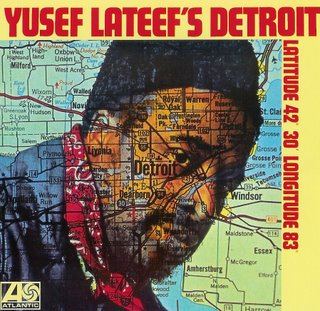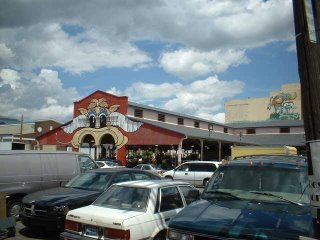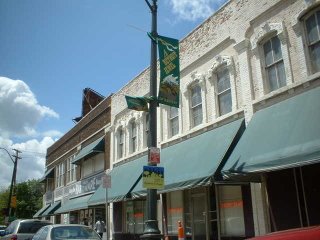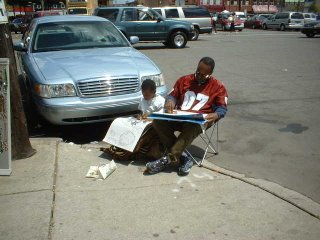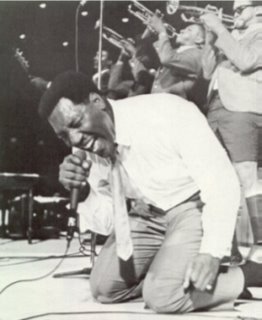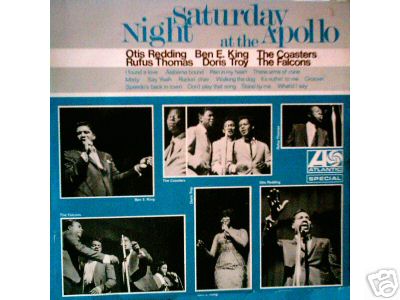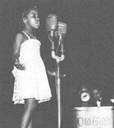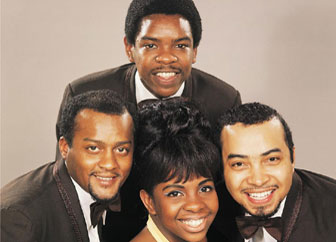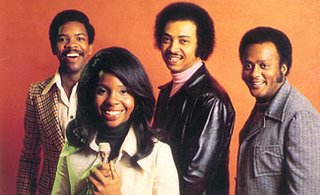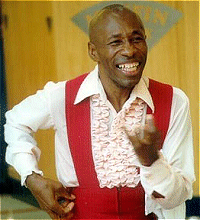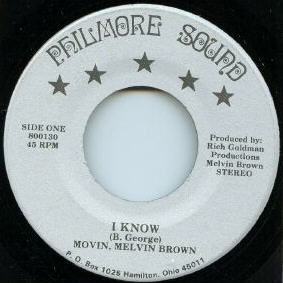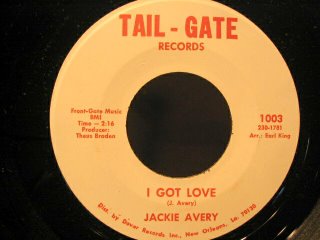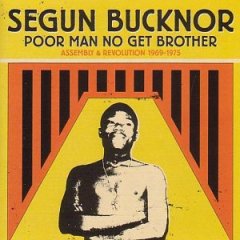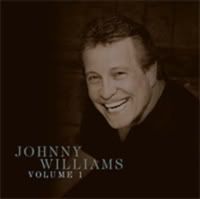The way that
Don Covay asks,
"Hey Joe's packing his bags, where you goin', Joe?" at the begininning of
The Soul Clan's single
"Soul Meeting" has never sounded like a good omen. The concept of the southern soul supergroup, founded by Covay in 1968, and comprising
Don Covay, Solomon Burke, Joe Tex, Arthur Conley and
Ben E. King, never fulfilled the hopes of its members, and perhaps some could already sense it while recording their first and only single.
The original plan had included
Wilson Pickett, but reportedly, Pickett had backed out, concerned both for his solo career ambitions, and perhaps concerned that the group would not prosper amongst Solomon Burke's many other business ventures.
Otis Redding was the other mooted Clan member, and the beginning of recording had been delayed while Otis underwent throat surgery and recuperated. Sadly, by the time the situation had been finalised, Redding had met his tragic death.
Arthur Conley, an artist whom Redding had cultivated and produced, was inducted in his stead.
Joe Tex said during the 1981 reunion,
"I would have given it a chance if Otis had lived. Man's head was on straight... the future of the Soul Clan died with Otis..."Joe revealed also his take on the spirit he had hoped the Soul Clan would embody, as he describes Otis thus:
"Talk to white, talk to black, don't piss nobody off, but don't Tom neither..."Solomon Burke, who, after Covay himself, was possibly the most committed to the enterprise, said in an interview,
“We wanted to interlock ourselves as a group, to express to the younger people how strong we should be and to help one another, work with one another and support one another...”The sentiment was a noble one, therefore, but the business acumen of
Atlantic Records' Jerry Wexler was not buying into it. The Soul Meeting single failed to catch fire, reaching No.34 on the RnB Chart, and only No.91 on the Pop Chart. An LP was scheduled and duly appeared, but it seems Wexler cancelled funding for group recordings. The LP has the two sides of the single, plus a selection of solo recordings by the Soul Clan members. What was the motivation for this?
Don Covay said in an interview with
Gerri Hirshey,
"Some funny stuff went down at Atlantic." Solomon Burke seemed to believe that Wexler in particular did not want to give his most successful black stars a greater control over their careers.
There is some cold logic in this. Wexler had groomed
Ray Charles, only to see him leave at the moment Atlantic might have capitalised upon their investment by involving Charles in movie deals etc. He may have feared that to allow five of his greatest and most lucrative hitmakers to work and act in solidarity would give them the power to collectively renegotiate their contracts, and cut the company's profit margins. As I said, logical, but hardly honourable or far-sighted, in my view. In each case, the members of the Soul Clan were poorly served by a company which failed to invest in publicity and actively sabotaged their recording schedule. Times were changing, and none of the final line-up of the Soul Clan were experimenting with, nor being encouraged to try, the new sounds of funk that might have boosted and elongated their hit careers. Atlantic Records was happy to let them fade away, while sucking up the back-catalogues and talents of regional hit factories such as Stax. No Marvin Gayes or Stevie Wonders would be nurtured in New York City.
The B-Side to Soul Meeting is
That's How It Feels, an apt summation of a bold but doomed venture to establish the Five Pillars of Southern Soul. It was written by Don Covay and
Bobby Womack. The single was recorded in Nashville, in February 1968.
That's How It Feels - The Soul Clan (Atlantic LP 587127 1968)This song has just been released on
Atlantic Unearthed: Soul Brothers, a new compilation of allegedly never-released tracks, that have been mercifully set free from their state of limbo by
Rhino Records. I am sure this is not the only example of a track that, rather than being unreleased, Atlantic simply willfully forgot... you can buy it
here.
Joe Tex said at the press conference before the1981 reunion show:
"I'm tellin you right now, it ain't gonna work." The concert was reportedly chaotic, with many technical problems and other setbacks.
"...we been having to make it on our own so long it's hard to get in step. A soul man is that. Singular. Soul Clan is more a beautiful idea to me." A statement that undercuts the sugar-coated marketing of soul music that tries to reduce it to a Starbucks moment.
The quotes and some of the facts for this entry have been found in Gerri Hirshey's "Nowhere To Run: The Story of Soul Music".
